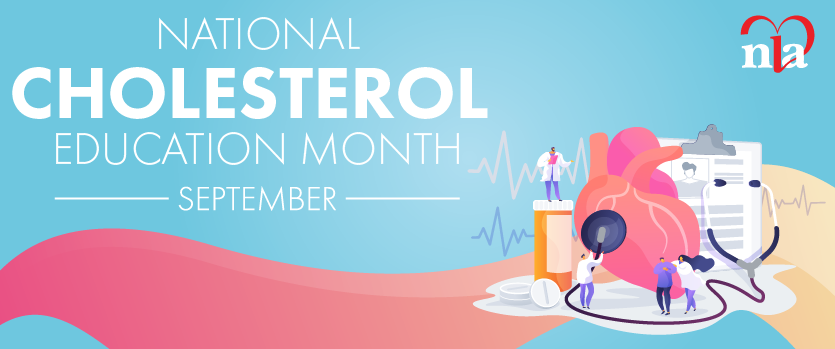Fall 2013
This issue sponsored by the Southeast Lipid Association Featuring: "An Update on Statin Safety with an Emphasis on Differences” and “Managing the Statin-Intolerant Patient: Low-Dose/Low-Frequency Treatment Regimens"
Our patient is a 67-year-old African American female referred to the Duke Lipid Clinic for hypercholesterolemia and elevated creatine kinase (CK). She has a history of coronary heart disease with a prior non ST-elevation myocardial infarction (NSTEMI) and stent placement. She has a former 40-packs-... more
For Barbara Wiggins, PharmD, a typical work day involves working up patients, managing medication reconciliation, verifying doses, compliance, and completing rounds as a member of an interdisciplinary health care team. Her spare time is divided into providing input on patient management, counseling... more
September is National Cholesterol Education Month. In recognition of this, the Foundation of the NLA has supported an important campaign called “ARE YOU THE ONE?” To help call attention to familial hypercholesterolemia (FH), the Foundation has provided two copies of a poster and handout... more
As a teen, I did all the things other 14-year-old boys did: played sports, hung out with friends, and raced dirt bikes. But around that time I learned I inherited a genetic disorder called Familial Hypercholesterolemia (FH). When I was diagnosed with FH in 1974, the medical community didn’t... more
The SELA board decided to devote this issue of Lipid Spin to the problem of statin intolerance. In formal clinical trials statin intolerance is reported in 2 to 3 percent of study subjects, but longer term follow up studies report a more realistic rate of 15 to 20 percent. In an informal survey of... more
Lipid Spin is but one NLA educational offering. As editors we are pleased to bring these issues to clinicians on a regular basis. Lipid Spin is peer reviewed. The subject matter is always trying to address how we can better take care of the patients/clients we serve. Our focus is prevention.... more
Statin drugs have been studied in numerous controlled trials involving hundreds of thousands of study participants. Their use has resulted in reduced coronary artery disease (CAD) mortality, morbidity and, in several studies, all-cause mortality. Even though clinical trial evidence and clinical... more
A patient recently told me the story of her statin-intolerant sister, who was referred to a cardiologist she had seen for chest pain a few years earlier. When he entered the room, she explained that she could hardly walk or even get out of bed on atorvastatin. The doctor simply stated there was... more
Statins reportedly are the most effective of the lipid-modifying drugs in primary and secondary prevention of coronary heart disease.1-6 Yet, many patients are deprived of the benefits of statins because of their associated complications. The most common statin-related complication is myopathy,... more






.jpg)
.png)










